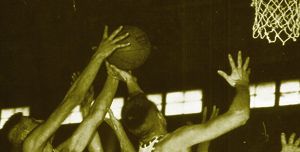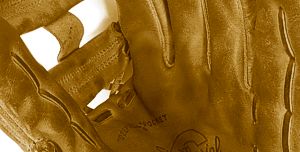Class of 2000
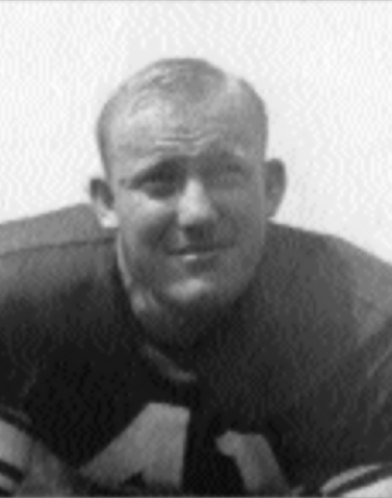 |
Irby Cash Cash was a two-way starter at Collinsville High School and an All-County player in 1942 and 1943, before he left home to join the Navy. He went on to Jacksonville State where he was a four-year starter as offensive and defensive guard. The 1947 squad at Jacksonville finished the season with a 9-0 record and led the nation in scoring and rushing defense. They defeated mighty Florida State that year and won the Paper Bowl the following two years, defeating Troy State and Livingston State respectively. In addition to being chosen All-Conference and All-Intercollegiate player, Cash was selected one of the top 100 athletes in school history during Jacksonville State's 100th year celebration. |
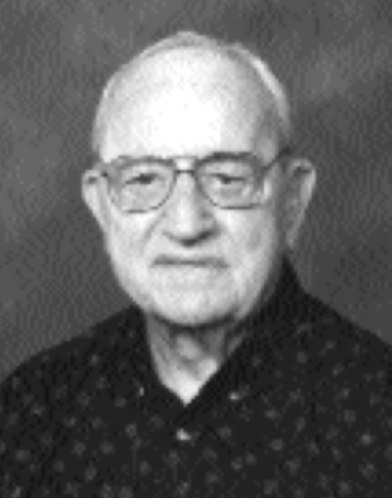 |
Elbert “Big Six” Couch A native of Etowah County, Couch played football at Emma Sansom and Auburn University before joining the Navy during World War II. Afterward, he served as captain of Don Salls’ first team at Jacksonville State. Following several coaching jobs and a second military stint, he began coaching at Sylvania, where he enjoyed nine consecutive winning seasons. His Rams won three DeKalb County Championships with records of 9-1, 9-1 and 8-2. His 1956 squad was selected the state Class AAA Champion. Couch later served as basketball coach at Etowah, then took a job as vocational director at Talladega High School. He held that position for 16 years. |
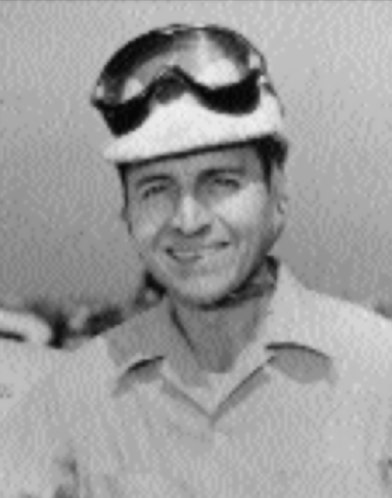 |
Jim Flock One of three racing brothers, Flock had 40 victories in 13 years and ranks 13th on the all-time victory list. He won the Grand National points title in 1952 and 1955 and set a record of 19 first-place finishes during the 1955 season. Flock was selected Driver of the Year in 1952, inducted into the Stock Car Racing Hall of Fame in 1977 and the International Motorsports Hall of Fame in 1991. He is a 2000 nominee for the Alabama Sports Hall of Fame. His induction into the DeKalb County Sports Hall of Fame is his eleventh. |
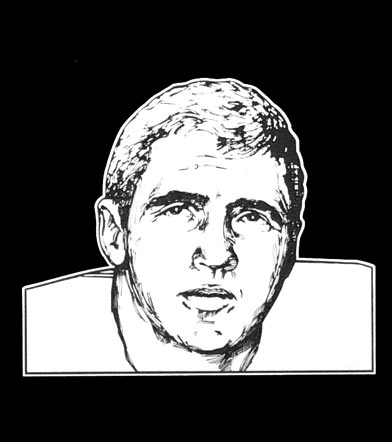
|
Harold Wayne Freeman Freeman played baseball, basketball and football at Fort Payne High School, where coach Vernon Wells called him the best football player he had ever coached. At the University of Alabama, under coach Paul Bryant, Freeman moved from fullback to offense where his talents flourished, winning him selections as All-SEC and All-American. He was chosen for two Orange Bowl teams, one Sugar Bowl team and was a member of the 1964 National Championship Team. In 1992 Freeman was selected by Crimson Tide fans to the school's team of the century. |
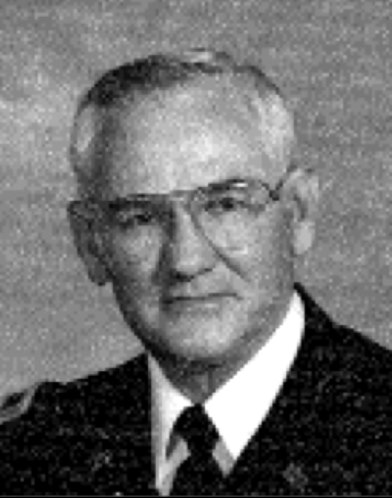 |
Donald Gann A three-sport standout at Ider High School, Gann has been called the best high school athlete in DeKalb County’s history. He excelled in baseball, basketball and football. He hit over .400 as a baseball player, and as a football player he was quarterback, returned kicks and was an All-County selection. He averaged 16 points per game in basketball. He was recruited to play baseball at Auburn and Tennessee and was offered professional contracts by the St. Louis Cardinals, the Washington Senators and the Atlanta Crackers. He was also offered football scholarships from Alabama, Tennessee and the University of Tennessee at Chattanooga. |
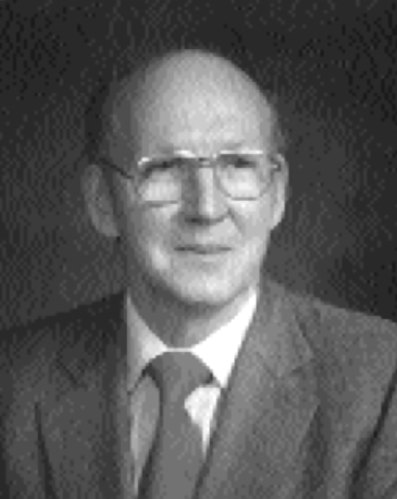 |
J.W. Richey Richey lettered two years at DeKalb County High School making All-County and All-District. At Snead State, he made the All-Southern basketball team twice. He received a scholarship to Jacksonville State, being named captain two years and was the squad's leading scorer his junior year. He was a member of the team that defeated Alabama’s “Rocket Eight”. Later, Richey coached basketball at Sylvania and at Cherokee County High School in Centre. Richey was selected as one of the top 100 athletes of Jacksonville State's first 100 years and was inducted into the school's Hall of Fame in 1991-92. |
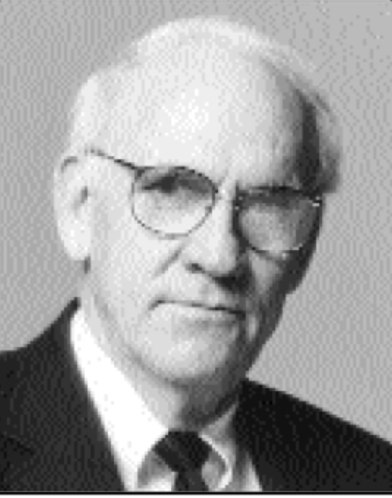 |
Tom Richey Richey attended Plainview and graduated from Fort Payne High School. He started on a Fort Payne basketball team that finished third once and second twice in tough District 8 competition. Richey was selected All-District three times and also earned MVP honors. He also played football and was selected All-County. Richey turned down football and basketball scholarships from Auburn and instead chose to attend Jacksonville State. Richey started his first year there and played on a team that defeated the Crimson Tide and Johnny Dee's Rocket Eight team. Richey was selected team MVP and captain his senior year. He coached basketball at Geraldine and won county championships during each of his three years at the school. Richey coached his teams to more titles during five years at Guntersville. He retired with a career record of 164-63. |
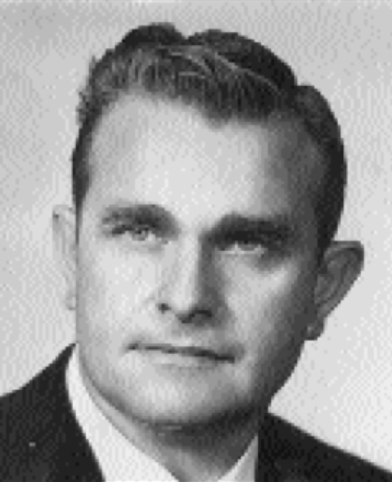 |
Earl Warren Born in Jefferson County, Warren grew up in Madison County, graduating from Madison County High School in 1946 after serving in Europe during WW II. While playing high school football, he made All-County in ‘42 and captain in ‘43. As a basketball player, he was captain in ‘42 and All-County and All-District in ‘43. Warren also played fast-pitch softball in the Huntsville City League (‘41-43) and service football in Nuremberg, Germany in 1945. He went to Tennessee Tech on a football scholarship but suffered a knee injury. Warren played softball for Tennessee Tech (‘46-’49), in Tennessee State Tournaments (‘46-‘47) and for fast-pitch team Redstone Rockets (‘49 -’51). He coached at Lincoln High School (‘49-’50) and won the Junior Basketball County Championship in 1949. Warren coached at Madison County High, then at Fyffe from 1952-57. His 1953 squad won Fyffe's first county championship, defeating Fort Payne 7-0. Fyffe defeated Fort Payne 14-12 in 1956 and again won the county crown. Warren coached at Valley Head in 1958-59, and his teams won county championships both years. His overall coaching record was 66-20-4. After his coaching career, Warren remained active with the Fort Payne Athletic Club. |
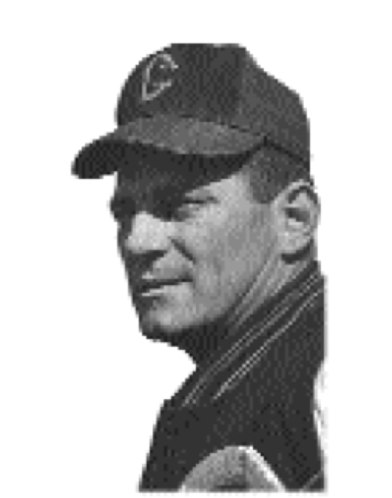 |
Harold Wilkes Wilkes graduated from Valley Head High School where he was active in three sports, playing All-County in baseball, basketball and football. After serving in the army for two years, he attended the University of Tennessee at Chattanooga, graduating in 1959 with a BS. Wilkes then worked as an end coach at UTC before being named Head Coach in 1959. His first team as UTC finished 9-1. Wilkes was a finalist for NCAA College Division Coach of the Year. Wilkes later served as UTC's athletic director, leading the school from College Division to Division I status, while winning 45 different conference championships, 4 Division II national championships and playing a major role in the building of UTC’s multi-million dollar arena. |


